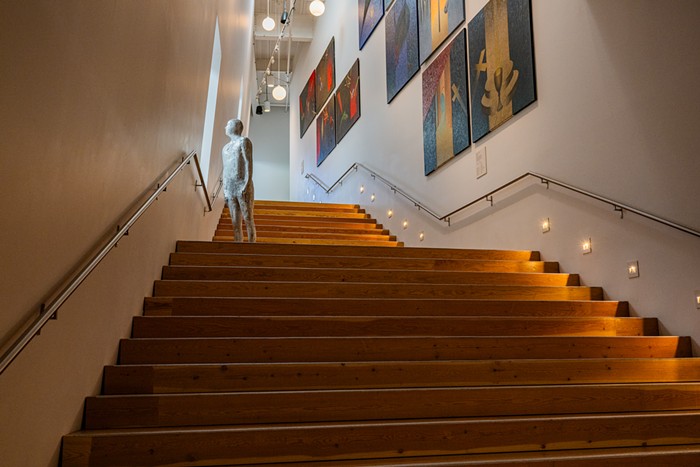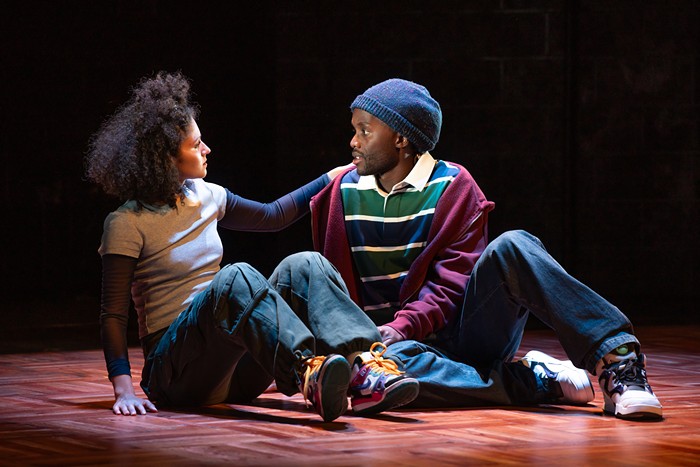
No one knows how to stretch a dollar better than non-profits. A little goes a long way, which is the idea behind Access for All, an initiative that was brought before the budgeting arm of the King County Council yesterday.
By raising the county sales tax just .1 percent (that’s one penny for every $10 spent on taxable items in the county), Access for All would increase funding for arts, science, and heritage organizations in King County by $70 million dollars. The focus of the initiative is to remove “barriers of access” that underserved communities face. Funding would be provided on the basis that at least 20 percent of funds received would be spent on public school access, and 30 percent on equity outcomes.
In a climate where arts, science, and education funding are on the chopping block on a national level, the revenue would go a long way for many local organizations to be able to grow and protect both their operating capacity, and programs that may be under threat.
We asked a few of them what they would do with the funding.
The 5th Avenue Theatre
Each year, 5th Avenue Theatre serves 83,000 youth with 150 educational performances brought directly to schools (43% are offered at no cost to the school), a mentorship program for 85-100 teenagers, as well as musical theater classroom residencies, classroom workshops, and student matinee performances.
“Cultural access funding would pay for the costs of these programs,” says Bernadine "Bernie" Griffin, 5th Avenue Theatre’s managing director, “and those expenses are primarily operating expenses—5th Avenue staff costs, and wages paid to professional actors, musicians and teaching artists.”
Many of 5th Avenue Theatre’s arts education programs are tuition-free, and for those programs with a fee, schools and participants can request a scholarship. “Our intention is to offer theater for ALL, no matter of their ability to pay,” says Griffin.
The Seattle Symphony
The Seattle Symphony will use Access for All funding to “create more equitable access to music education, performances and participatory artistic experiences,” says President & CEO Simon Woods. Funding would allow the symphony to offer more tickets per season to partner non-profit organizations through their Community Connections program. An outgrowth of this program, Simple Gifts, works with groups like Path with Art, Mary's Place, and Plymouth Housing Group to provide residencies for the homeless to collaborate and compose musical performances.
They could make Link Up, their educational program which serves between 10,000 and 11,000 students in grades 3-5 each year, free of charge, and buy recorders for the students as they practice for their big concert at Benaroya Hall (where they get to play along with the orchestra!).
“Programs we’re considering,” Woods says, “include residencies for artists from diverse backgrounds, and encouraging young musicians from diverse backgrounds through mentoring, audition coaching, audition travel expenses, and potentially creating internship or fellowship programs in the orchestra.”
Pacific Science Center
Pacific Science Center is eager to start offering ‘free days’ for King County residents who aren’t members, says CEO Will Daugherty. Additionally, Access for All funding can help them improve and develop programs already in the works, such as the Science on Wheels program, which is “particularly impactful in South King County,” he says.
They would use the funding to grow their Family Access Membership program, launched last year in April, which provides deeply discounted, full family memberships to anyone on public assistance. (So far 2,300 families signed up from across King County, including Shoreline, Rainier Valley, Lake Forest Park, Federal Way and Everett), and their youth access membership, which provides free membership to homeless youth and to foster youth (400 people are signed up so far).
Discovery Corps program is a four-year program for underserved high school students to learn critical job skills. According to Daugherty, more than 85 percent of the students who enroll in the Discovery Corps program go on to college.
“Now we've got every year a cohort of eight to ten spaces for Discovery Corps, and we get 30 to 90 students applying,” he continues, “So we are significantly capacity-constrained, and Access for All would allow us to expand the service that we're providing to those kids.”
Artist Trust
While Artist Trust offers direct-support grants and educational programs for artists across all of Washington State (full disclosure: I used to work there, so I had their mission statement memorized), Program Director Brain McGuigan points out that “a majority of that support is invested directly into individual artists living in King County and artists’ projects taking place in King County.”
Funding from Access for All would go towards operating expenses and programs specific to King County artists, says McGuigan, and to strengthening their commitment to racial equity by engaging diverse communities in their grant process, and increasing scholarship support for artists of color.
The Holocaust Center
Every week, students from all over King County and the region come to the Holocaust Center to hear stories first hand from local Holocaust survivors and their families.
“The experience is so much more than a field trip for them—it’s an opportunity for them to connect this history with their lives today,” says Ilana Cone Kennedy, Director of Education at the Holocaust Center for Humanity. “And for many, this is their first real encounter with the subject.”
With Access for All funding, they could provide teacher training, expand their financial support to schools that bring their classes on field trips to the Center, and add resources to their available teaching materials.
“One of our most popular programs – our Holocaust ‘teaching trunks,’ containing books, posters, DVDs, activities, and other teacher resources,” says Kennedy, “has a greater demand than we can meet. We make these trunks available to teachers for free, even covering the cost of shipping them to the schools.”


















